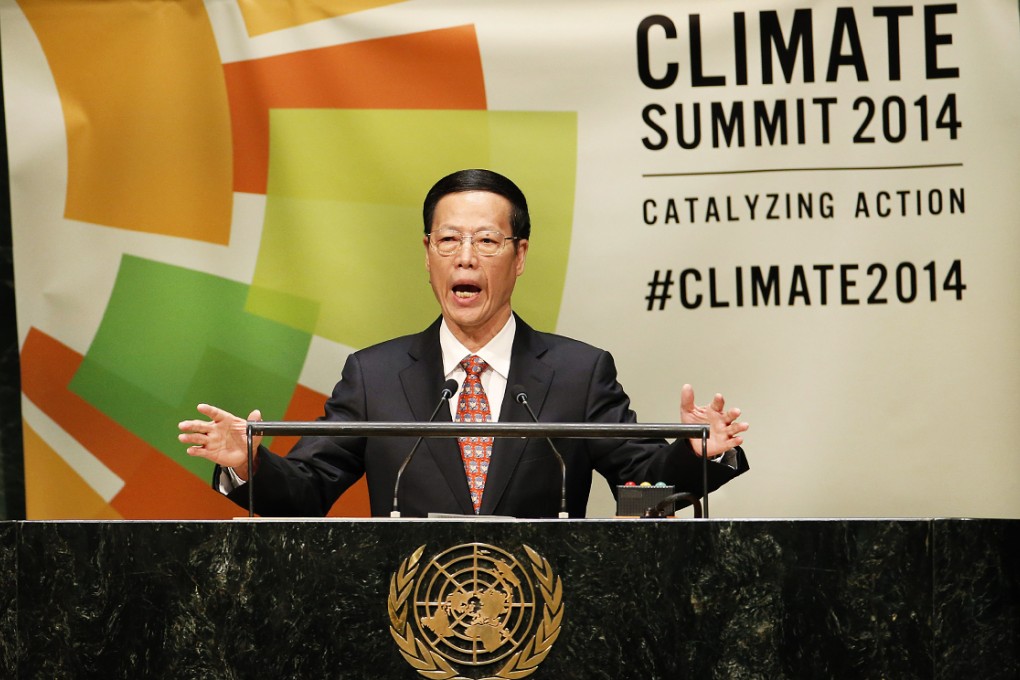China will seek a peak in carbon emissions 'as soon as possible', vice-premier says
China says it will honour pledge to reduce carbon emissions as analysts say public concern over pollution is stirring the government into action

China pledged at a United Nations climate summit in New York to meet its top target for reducing growth in greenhouse gas emissions by 2020.
Xie Zhenhua , a deputy director of the National Development and Reform Commission, said that China would cut emissions produced per unit of gross domestic product by 45 per cent in the next six years compared with levels in 2005.
China pledged in 2009 to reduce the emissions by between 40 per cent and 45 per cent by the end of this decade. Total greenhouse emissions will still rise, however.
Environmental pressure groups said China, the world's biggest emitter of greenhouse gases, appeared to be taking its commitments to tackle climate change more seriously.
Li Shuo , a senior climate and energy policy officer at Greenpeace East Asia, said the government faced stronger public pressure to tackle air pollution and cut coal consumption, making its negotiators more open in international talks to the possibility of a carbon cap.
Xie also confirmed that China would announce its post-2020 carbon emission targets by March next year to help secure a new global treaty on climate change by the end of 2015. A UN summit in Copenhagen in 2009 failed to produce an international agreement on a new round of emissions cuts.